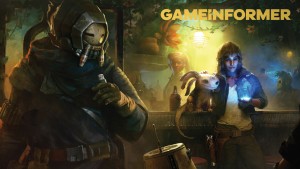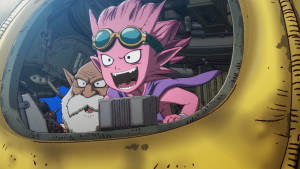Please support Game Informer. Print magazine subscriptions are less than $2 per issue
Diving Into The Digital Collectible Card Game

The digital collectible card game (DCG) is a genre getting a lot of love and attention in 2014. As we get more acclimated to a world of digital purchases, owning and playing with a collection of digital items is becoming a real alternative to shoeboxes filled with physical items that could be damaged.
Certainly there’s some give and take here, as the social aspects that drive physical card games can take a serious hit in the switch to digital. Collections could disappear forever if a game closes its doors.
Assuming you’re ready to take the plunge into the online CCG world, selecting a digital card game can be intimidating. If you’ve never played a card game before, where’s a good place to start? And how can you avoid the nastier “pay-to-win” free-to-play titles that cater to whales only?
Up until recently, the DCG could be found mainly in mobile, Facebook, and web-browser titles. A few solid options existed, but many of these were “card battlers” as opposed to actual card games with significant mechanics. In 2014, we’re seeing a surge in actual card games entering the market with their own clients and much less offensive payment models. While many of the current options allow players to purchase cards or pay to enter tournaments, they often have models that allow a free-to-play player to progress and compete at a reasonable rate.
So where to begin? If you’re already a player of tabletop staple Magic: The Gathering, you may have already explored Magic: The Gathering Online or Duels of the Planeswalkers. If you’re looking to learn Magic or teach someone else how to play, a Duels of the Planeswalkers title is the best option. Players already familiar with the rules of Magic will find echoes in many of today’s offerings and can dive in wherever they wish. Magic: The Gathering Online may face some actual competition this year as the pricing for digital product is tied to actual cards, i.e. a booster pack online costs just as much as it does in the real world due to a redemption system that allows players to turn in recent online sets for real copies. But what if you haven’t played Magic?
Perfect For Newcomers
Blizzard’s Hearthstone, which just entered open beta, is the most accessible of the digital card games right now. There won’t be any collection deletion moving forward and players are free to purchase packs (read: soft launch). While World of Warcraft inspires the characters and settings, you don’t need to be knowledgeable about the franchise to play. WoW players will appreciate the themes, but they are completely unnecessary to understanding and enjoying the game. I know quite a few people who dove in with zero interest in World of Warcraft and still had a good time.
The turn structure in Hearthstone is simplified – the only time players need to take action is on their own turns. This is combined with a streamlined resource acquisition system that makes it one of the easiest card games to learn and play. These design choices make Hearthstone one of the fastest card games out there, with many matches taking around ten minutes to play.
Players searching for competition and challenge can find it here as well, as it manages to have significant depth as well with ranked ladder play via a rapidly shifting metagame and a variety of competitive decks.
One of the more enjoyable aspects of any collectible card game is the format where fresh cards are opened and decks are built from scratch, and Hearthstone offers this in the form of its “Arena” mode.
For The Seasoned Veteran
An option for more seasoned genre veterans is Ubisoft’s Might & Magic: Duel of Champions. The title adds a tactical layer with a front and back row featuring ranged, flying, and ground troops each with their own deployment rules and perks. Fans of the Might & Magic franchise, particularly the Heroes of Might & Magic series, should notice the faction and spell school correlations. Like many other titles coming onto the scene, Might & Magic’s resource system eliminates the possibility of being screwed holding resource cards, and instead allows players to develop gradually over the course of a game.
For The Gamer On The Go
As a mobile option that’s fairly painless to get into, SolForge is worth a look. While the mobile market is filled with card battlers and other pseudo-CCGs featuring expensive five-star cards that crush anything below them, SolForge gives mobile players a real game. SolForge’s mechanics are simple as they are designed for phone and tablet use, but there’s plenty of depth there too. SolForge is available on PC as well, but shines as one of mobile’s best.
For The Strategy Enthusiast
For a healthy dose of tactics and strategy mixed in with your card game, Mojang’s Scrolls or Abrakam’s Faeria may be worth checking out. While both of these games feature card-centric mechanics, there are elements of board and tactical games mixed in. Scrolls hasn’t had a whole lot of fanfare since its initial early access buy-in, and Faeria is still many months away from launch, but both titles are hoping to fill a niche sector within the digital card game space.
Something Completely Different
If you’re looking for something similar to Magic with digital in mind? Hex: Shards of Fate is worth consideration when it comes out of alpha later this year. While it features PVE and MMORPG elements, the PVP portion of the game is firmly rooted in Magic’s core concepts.
A bevy of indie DCGs are also coming from Kickstarter and Steam Greenlight. There are too many to mention, but up-and-comers like Infinity Wars are looking to make a name for themselves on this frontier.
The digital card game genre isn’t new, but with big publishers and developers turning their gaze to models that work within the free-to-play space, expect to see many more this year.










